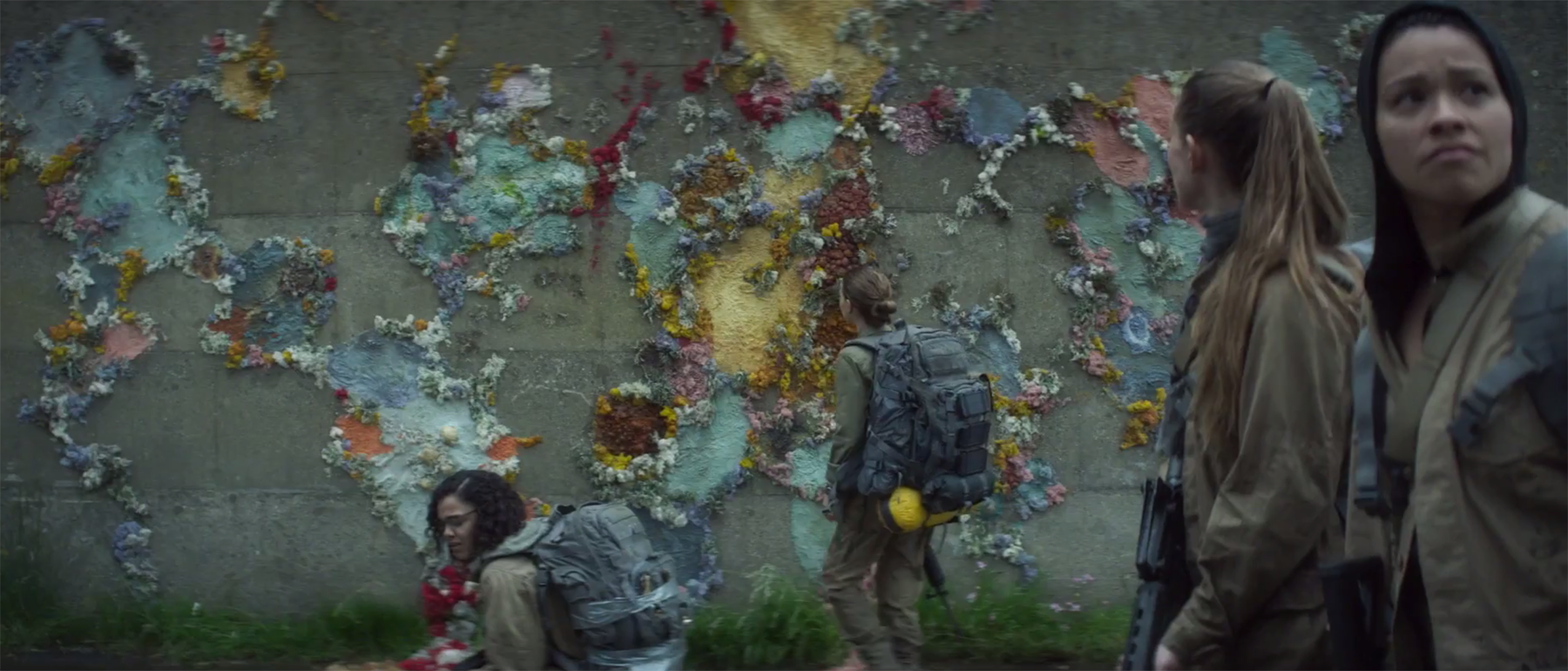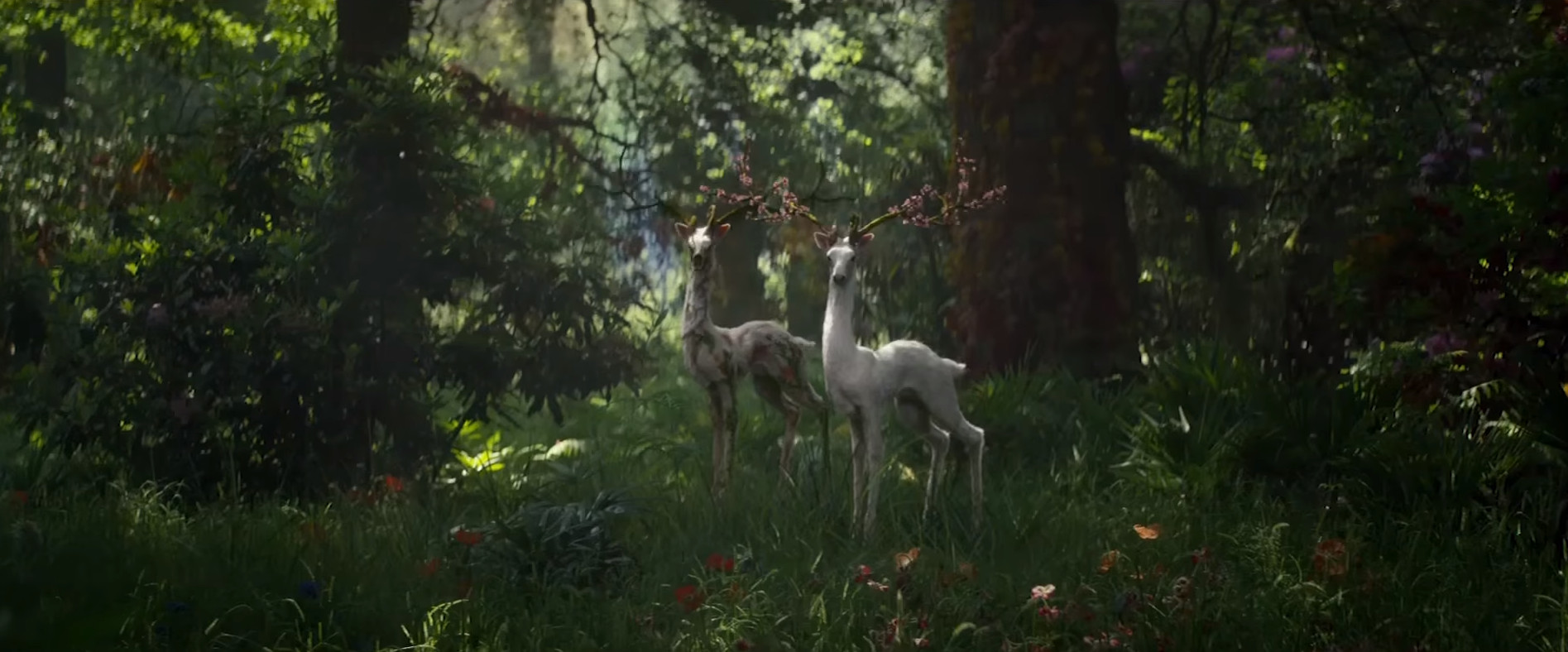Imagine the following plot. There’s a married straight couple, and the woman cheats on her husband with a colleague. She feels guilty, but refuses to acknowledge it. He knows or suspects, but refuses to confront her. Instead, he decides to start volunteering for some dangerous work in the city. Their relationship is breaking down due to poor communication. While volunteering, he gets stabbed, then promptly falls into a brief coma. The woman feels guilty and uncertain, so she decides to volunteer for the same position. She faces and overcomes various difficulties. One night, she has a dream in which one of those difficulties involves fighting herself. In the morning, she goes to the hospital, finding out that her husband has awoken. They embrace, each having in some way overcome the trauma of infidelity by confronting and overcoming their false or worst selves.
First, if this sounds like a trite romantic melodrama, then that’s because it is. Second, if you add some critters, a few weird flowers, and then drench everything in chromatic aberration, you’ve got the film Annihilation (Garland, 2018) in a nutshell.
If there’s one thing the novel Annihilation (and its sequels, Authority and Acceptance) wasn’t, it’s romantic melodrama, trite or otherwise. What made the biologist interesting is precisely her cool affect and distantiated, intellectual relationship with others. It separates her from the social, which is precisely what facilitates her unique response to the encounter with Area X. Yes, she’s married in the novel, and, yes, she wants to know what happened to her husband. In the film, however, this becomes her sole motivation. Garland takes an independent, interesting female character and reduces her to a guilty, pining wife. In fact, he does something similar with almost all his characters. In the novel, the women on the biologist’s expedition are competent professionals who inevitably break down inside Area X, just like everyone else. In the film, they arrive already broken. I’m utterly baffled by the degree to which Garland makes his characters complain about how heavy things are, rhapsodize about weddings, and talk about boys.
The film is like a walking Bechdel test failure.
Ultimately, however, the primary source of my discontent with the film isn’t that it doesn’t adapt the novel faithfully – or even that it treats its characters with something bordering on contempt. I think directors and screenwriters should be as free as they like with their source material, and I’m a fan of purposefully creative adaptations.
But Annihilation doesn’t adapt the novel; it murders it. I mean this as literally as possible.
VanderMeer makes his biologist a complex, rich character. Garland turns her into shallow dunce. VanderMeer spends almost all his descriptive energies on refining the subtle ambiguities of Area X. Garland tells you it’s a fucking alien, then has the biologist blow its face off with a phosphorous grenade. VanderMeer shows us that the landscape is saturated with affect, with liveliness, with a motile semiosis that penetrates our unconscious and transforms it. Garland gives us an evil monster bear. In other words, it’s as if Garland hunts down every intellectual and literary virtue in VanderMeer’s novel, then makes a point out of flipping that virtue into a vice.
After a certain point, you’ve got to wonder if Garland actually hates the source material, or what it is trying to do. In a sense, I wouldn’t be surprised, and this isn’t even intended to be a personal comment about Garland. After all, it’s almost universally acknowledged that VanderMeer’s Southern Reach novels are intimately concerned with the ecological, and our culture isn’t exactly known for its refined ecological sensibility. To the contrary, I’d argue that our culture is informed fundamentally by its hatred of the ecological. I don’t know that Garland’s film is informed by such an unconscious hatred, but, at the very least, it renders even the most basic concerns of the novels utterly illegible.
Some reviewers are squawking about how lush the film is, but it’s no more or less lush than Predator. It does contain a few visual references to weird nature – including what I would argue is one of the only interesting shots in the film, see below – but a bit of dialog about “genetic refraction” just doesn’t cut the mustard. (By contrast, if you want to see a genuinely underrated film about affect, genetics, and the posthuman weird, go watch Splice.) My complaint isn’t that the science isn’t hard science. Rather, the little noises about “genetic refraction” don’t even matter. Imagine that the characters said, instead, that “the shimmer” caused “genetic diffusion,” then uttered a few bland sentences about whatever that means. It just doesn’t matter, because the film isn’t about genetics, or nature, or anything of the sort.
In conclusion, it’s difficult, if not impossible, to pull any kind of ecological awareness or insight out of the film. Garland took what should’ve been a powerful, sublime, and deeply unsettling meditation on our fundamentally weird condition as natural creatures who dream that we aren’t, and he’s turned it into a trite romantic melodrama at best. If you don’t understand that Area X is nature, then I don’t think you can understand the Southern Reach trilogy. If you do understand that Area X is nature, then I think it’s impossible to view the film adaptation with anything other than bafflement, at best, and, more likely, contempt and disappointment.

